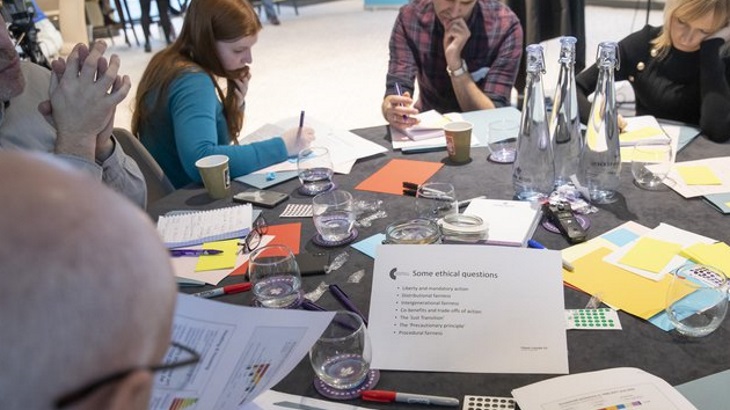Six Select Committees of the House of Commons commissioned the citizens’ assembly to understand public preferences on how the UK should tackle climate change because of the impact these decisions will have on people’s lives. Today Climate Assembly UK hands its work back to the committees with their final report, The path to net zero, issuing strong calls to Parliament and the government to rise to the challenge of achieving the net zero target "in a clear, accountable way".
In a statement opening the report, Assembly members said that it is "imperative that there is strong and clear leadership from government" that should "forge a cross-party consensus that allows for certainty, long-term planning and a phased transition" and stress that "now is not the time for scoring party political points".
In response to calls for strong government leadership and cross-party cooperation, the chairs of the six commissioning select committees have written a letter to the Prime Minister, urging him to ensure that the government acts on the recommendations of Climate Assembly UK by "showing leadership at the very highest level of government" ahead of the UK hosting COP26 in November 2021.
In the letter to Boris Johnson, the Assembly wrote that its report "provides a unique insight into the thinking of an informed public to the trade-offs and changes that will be required to help deliver on the objective that Parliament has agreed".
According to the report, Assembly members were "much less supportive" of bioenergy, nuclear and fossil fuels with carbon capture and storage. Some 35% of assembly members 'strongly agreed' or 'agreed' that nuclear should be part of how the UK gets to net zero, 18% were 'unsure', and 46% 'strongly disagreed' or 'disagreed'.
Assembly members saw three main disadvantages to nuclear: its cost, safety and issues around waste storage and decommissioning.
Tom Greatrex, chief executive of the NIA, said people who took part in the Citizens Assembly "want to see real action" to meet net zero - more electric vehicles, decarbonising home heating, and stopping burning fossil fuels as the main way to generate electricity.
"As the Committee on Climate Change have shown, Net Zero means four times as much clean power as now for the UK to stop burning polluting fossil fuels. Emissions-free, reliable and secure nuclear power is needed for Net Zero - complementing wind and solar but also creating skilled, long-term jobs as part of the green recovery that we need to make Net Zero happen."








_97013.jpg)






